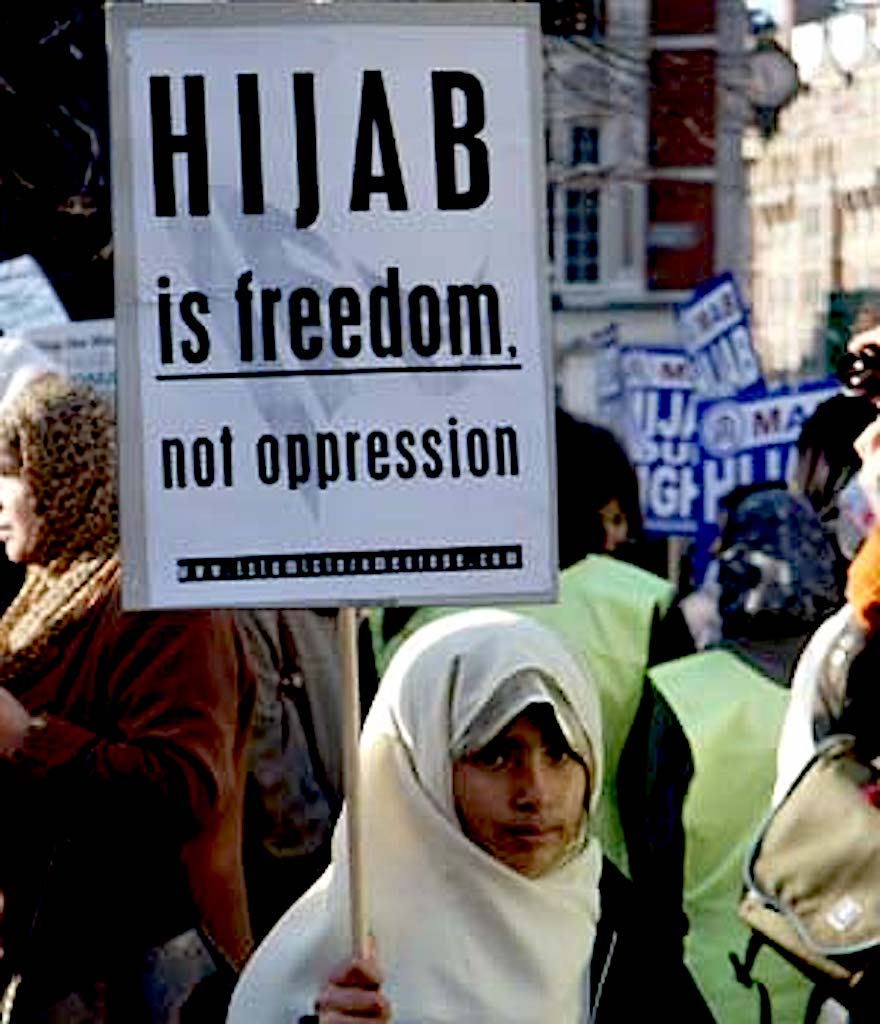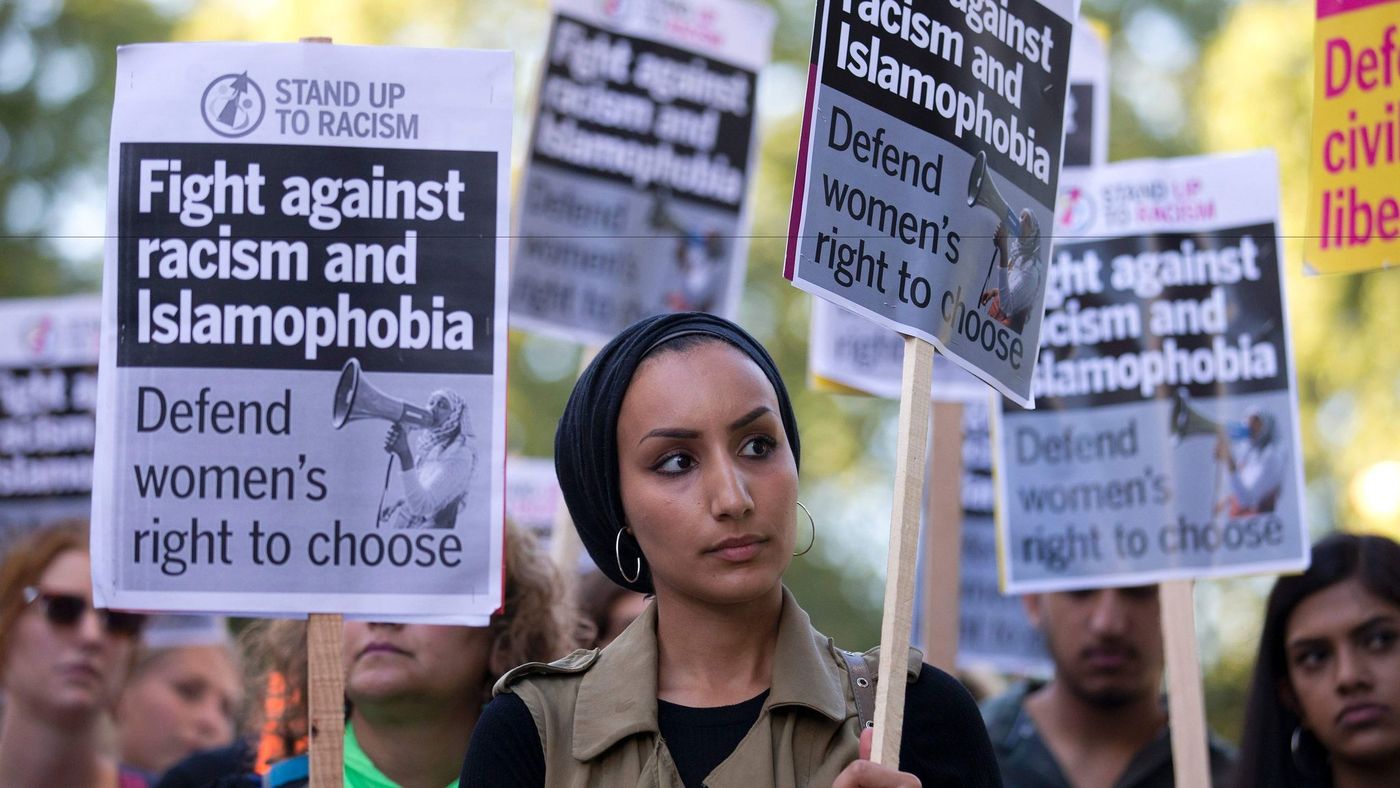Afshan Khan, BeyondHeadlines
When a lot of women, in solidarity with their hijabi sisters, have started wearing hijab in the aftermath the Burqa ban in many western countries, there are also women who have abandoned their head coverings voluntarily.
This is surprising that in India, Pakistan, Turkey and many other countries where Hijab is not banned, some Muslim women choose to do away with it.
Well! Everyone has a right to choose what to wear and what not, this article does not attempt at judging those women but an attempt at exploring the reasoning being this decision.
Author, Saba Ali shared her experience of taking off her hijab for one day in Washington Post. She says that she’s worn the head covering for more than two decades and had decided to take her headscarf off one sunny morning.
“Without my hijab wrapped around my head and pinned tightly under my chin, I was nothing special. I no longer stood out as the oddity or the outsider. Without that thin piece of fabric, I was just like everyone else waiting in line, blending into the background with my Americano and blueberry muffin,” explains the author.
These lines have a deeper meaning than it appears. It explains how a person who does not consider anything more important than the faith can also revise her faith and looks at her beliefs critically. It also answers those who narrow-mindedly argue that a hijab can oppress a woman; as the author says, she was no more special in the crowd after taking off her hijab. But instead of proving something to others, shouldn’t we be more confident about what we wear and what beliefs we adhere to?
Another piece titled, ‘Why I Took Off My Hijab’ in an online magazine, shares the author’s view on why she took off her hijab. In this case, she did not take her hijab back. She brilliantly explains each confusion and conflict that she has had about/with herself. She says, “A friend said that every time he saw a woman wearing hijab, he assumed that she was conservative, close-minded and unapproachable. These assumptions bothered me because I felt that those three traits did not apply to me. Would I feel better without the hijab? Would it be different if I didn’t wear it?”
The main reason she wore hijab at first place was because of the norm in her society and she felt uncomfortable with her body.
She explains how she went on to discuss her decision of taking off her hijab, and says that in response to her decision, some turned out to be less open-minded than she expected. Here she asserts the stigma that those who are with the idea of not doing away with the hijab are “conservative”.
Her case is a good example of how women get affected by the society they live in relation to what they wear as she accepts that she was influenced by Westernisation. Anyway, her advice to first read and understand the reason on what does your religion say about your hijab has a logic, but her explanation further judges the women who wear a hijab.
One can read a story everyday about hijab ban or burqa ban in one country or the other. Sometimes, women are fined, jailed or even punished. We see photos of a huge gathering of women carrying posters and demanding their right to wear a veil or a head covering.
Islamophobia is the main reason behind such actions by these so-called modern societies. I wonder how these nations which are believed to have respect for values such as liberty, equality, fraternity and justice, can throw aside all their values and brush aside the individual’s freedom of choice. Inside the covering of so-called modern values, lies the intention of suppressing the freedom of the women of a community.
A lot of women face the compulsion to do away with their headscarves but there are also women who willingly do it.
Humera Akbar, who used to wear Hijab since the time, she was in eighth standard, does not wear a headscarf now. The reason she gives for this is that she wore it because of the common culture in her society.
I asked her if she knows what Qur’an has to say on Hijab and why are women required to do purdah according to Islam. On this question, her answer was a clear no.
Sabiha has three kids and is a single parent to her children does not have any reason behind holding on to hijab or getting away with it. She told me, she started wearing “just like that,” when asked about her reason of choosing to cover her head.
Maryam, who has just started wearing a hijab, says that she loves the fact that Allah has ordered men first to lower their gazes and then women to cover their bodies. She truly believes that it is the perfect ruling for both sexes.
She quotes the verses of chapter no. 24 of Qur’an, Surah al Noor which says, “(O Prophet), enjoin believing men to cast down their looks and guard their private parts. That is purer for them. Surely Allah is well aware of all what they do. And enjoin believing women to cast down their looks and guard their private parts and not reveal their adornment.”
Abida Khatoon, who carried her scarf for more than a decade and loves to be a Hijabi Muslimah, shares her experience of how some Muslim women created problems for her and forced her to remove her scarf, several times while she kept on insisting to continue it. She participated in sports, National Cadet Corps and never felt that her hijab is a hurdle to her empowerment.
Responding to a question as to what is the reason behind some women taking off their hijab after carrying it for a long time, she says, “They have low self-esteem. They are not confident that they can succeed without always bothering about the confirmation of the society.”
Atiya Erum says that she feels empowered wearing a hijab and is absolutely satisfied knowing the fact that she is not subjected to any societal or cultural pressure to look in a way that is “acceptable” in a society or culture. She says, “I have turned down many job proposals due to their demand of removing my hijab and I am not at all apologetic about this.”
“It’s the greatest strength of us Muslimah, when we wear it, we slap the oppressors of Islam… It’s our identity and we must try our best to preserve it at any cost”, she adds.
After hearing such cases, it is not proved from anywhere that these women felt suppressed or were denied any rights and therefore they took it off. In fact, their decision to carry or take off a Hijab was personal and there was no religious reason behind this. Those who are happy with Hijab know the reasoning behind it. These cases also show that if anything without a will is imposed on someone without being clear on what are the implications and benefits of it, then women are likely to cross over it.
(Note: Some names are changed as per the demand of respondents. All are from Delhi.)
Related Story :
Abaya and the Experience of Alienation
























